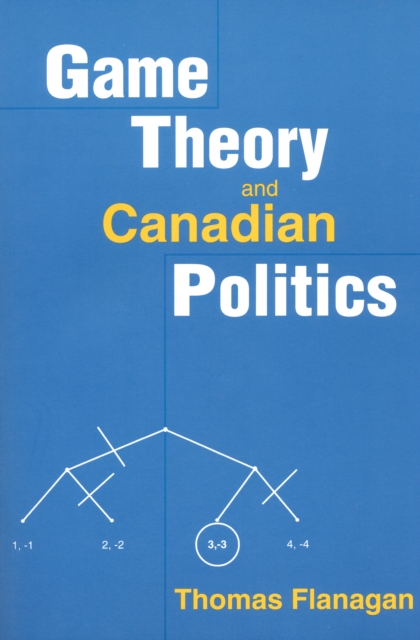
Game Theory and Canadian Politics Paperback / softback
by Thomas Flanagan
Paperback / softback
- Information
Description
This is the first book-length application of game theory to Canadian politics.
It uses a series of case studies to illustrate fundamental concepts of game theory such as two-person and n-person games; solution in mixed strategies; ordinal games; Nash equilibrium; coordination, Assurance, Chicken and Prisoner's Dilemma models; Schelling curves; coalition theory and Riker's size principle; voting rules, cycles, and the Condorcet winner; the Banzhaf power index; structure-induced equilibrium; and spatial models of political conflict.
No mathematics more complex than simple algebra is required to follow the exposition. The case studies are not just contrived illustrations of abstract models but intensively researched studies of important episodes in Canadian politics.
Topics include the Lubicon Lake stalemate, metrification and vaccination; the size of winning coalitions; formulas for amending the Canadian constitution; the mechanics of choosing party leaders; Parliament's failure to legislate on abortion after the Morgentaler decision; and the entry of the Reform Party into the political system.
In each case, utilization of game-theory models produces new and sometimes surprising conclusions. Game theory, and the rational-choice paradigm of which it is a part, are an increasingly important addition to the conventional modes of political analysis.
This book is intended to show what game theory can add to the philosophical, institutional, and behavioural approaches that have dominated previous works on Canadian politics.
Information
-
Available to Order - This title is available to order, with delivery expected within 2 weeks
- Format:Paperback / softback
- Pages:224 pages
- Publisher:University of Toronto Press
- Publication Date:26/12/1998
- Category:
- ISBN:9780802079466
Other Formats
- PDF from £22.94
Information
-
Available to Order - This title is available to order, with delivery expected within 2 weeks
- Format:Paperback / softback
- Pages:224 pages
- Publisher:University of Toronto Press
- Publication Date:26/12/1998
- Category:
- ISBN:9780802079466